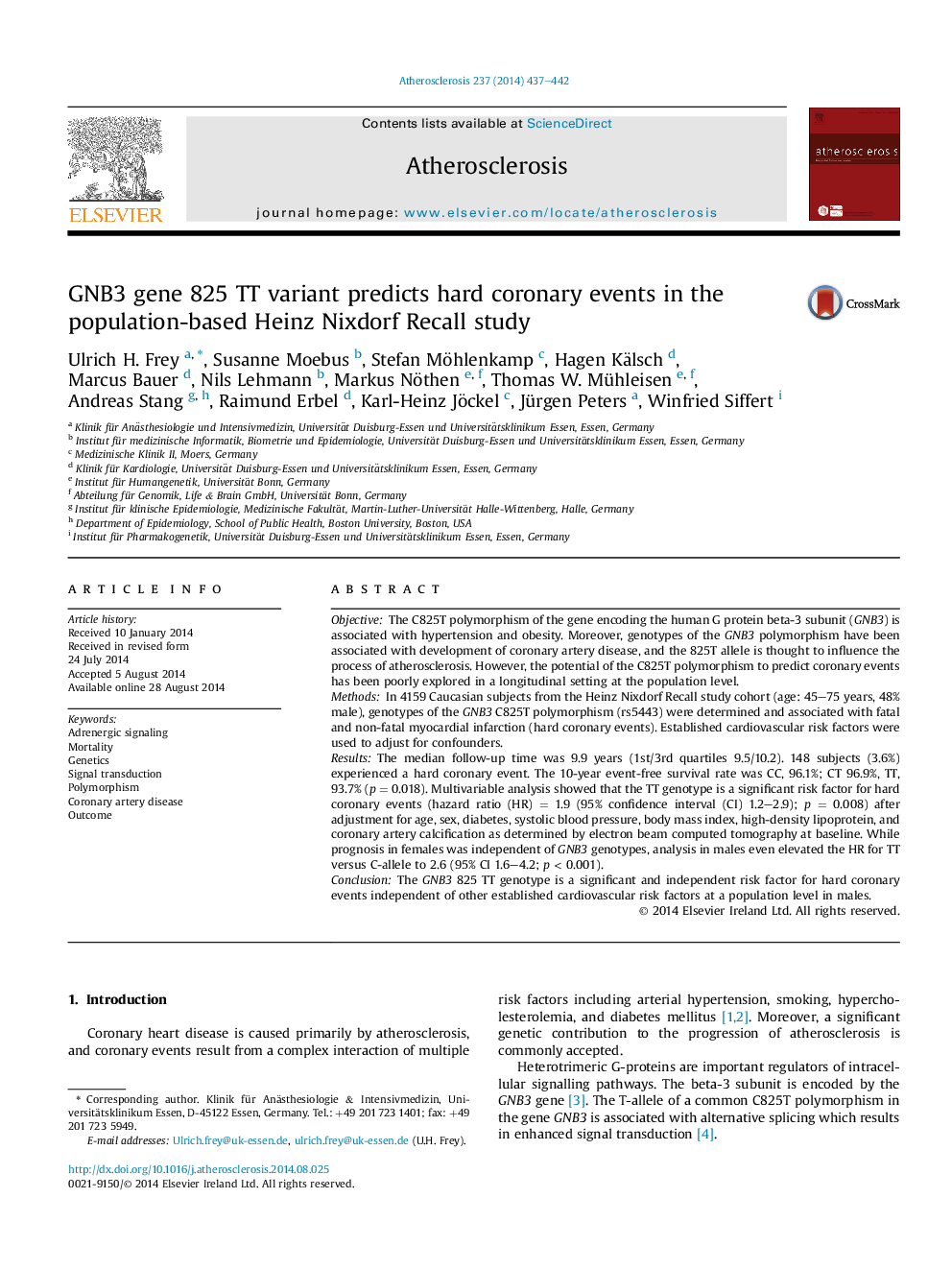| Article ID | Journal | Published Year | Pages | File Type |
|---|---|---|---|---|
| 5945349 | Atherosclerosis | 2014 | 6 Pages |
â¢A genetic predisposition to coronary events was shown for the first time in a large observational study.â¢This biomarker may be used for risk stratification especially in males.â¢Here we show that myocardial infarction, a relevant endpoint for hypertension is related to this genetic variation.â¢Genetic testing may identify individuals who a at high risk for hard coronary events such as myocardial infarction.â¢Those individuals may require individualized therapy to for risk minimization.
ObjectiveThe C825T polymorphism of the gene encoding the human G protein beta-3 subunit (GNB3) is associated with hypertension and obesity. Moreover, genotypes of the GNB3 polymorphism have been associated with development of coronary artery disease, and the 825T allele is thought to influence the process of atherosclerosis. However, the potential of the C825T polymorphism to predict coronary events has been poorly explored in a longitudinal setting at the population level.MethodsIn 4159 Caucasian subjects from the Heinz Nixdorf Recall study cohort (age: 45-75 years, 48% male), genotypes of the GNB3 C825T polymorphism (rs5443) were determined and associated with fatal and non-fatal myocardial infarction (hard coronary events). Established cardiovascular risk factors were used to adjust for confounders.ResultsThe median follow-up time was 9.9 years (1st/3rd quartiles 9.5/10.2). 148 subjects (3.6%) experienced a hard coronary event. The 10-year event-free survival rate was CC, 96.1%; CT 96.9%, TT, 93.7% (p = 0.018). Multivariable analysis showed that the TT genotype is a significant risk factor for hard coronary events (hazard ratio (HR) = 1.9 (95% confidence interval (CI) 1.2-2.9); p = 0.008) after adjustment for age, sex, diabetes, systolic blood pressure, body mass index, high-density lipoprotein, and coronary artery calcification as determined by electron beam computed tomography at baseline. While prognosis in females was independent of GNB3 genotypes, analysis in males even elevated the HR for TT versus C-allele to 2.6 (95% CI 1.6-4.2; p < 0.001).ConclusionThe GNB3 825 TT genotype is a significant and independent risk factor for hard coronary events independent of other established cardiovascular risk factors at a population level in males.
